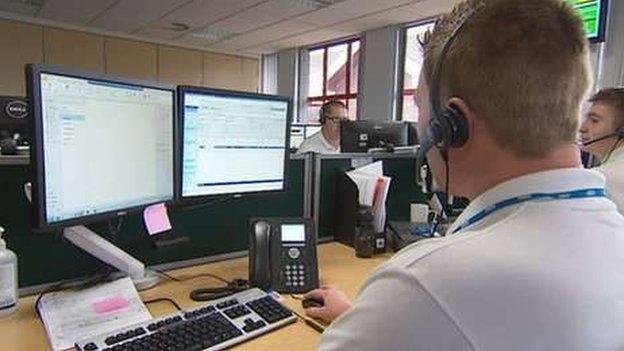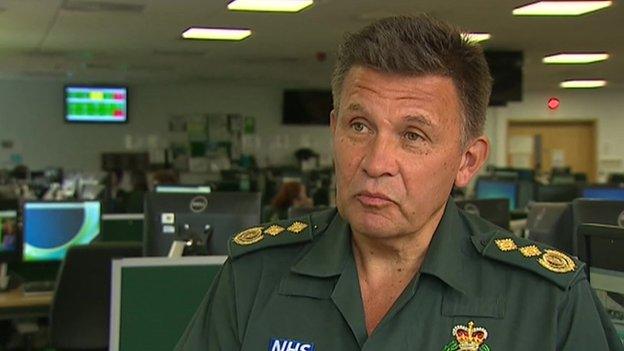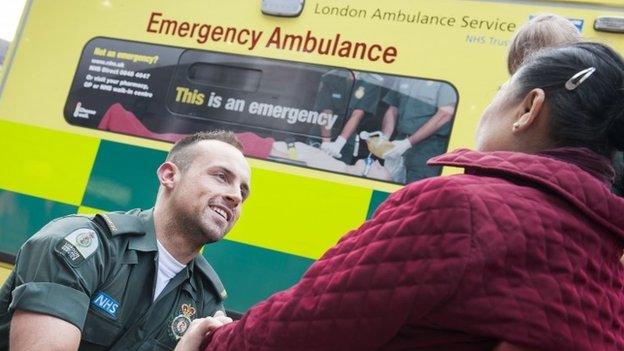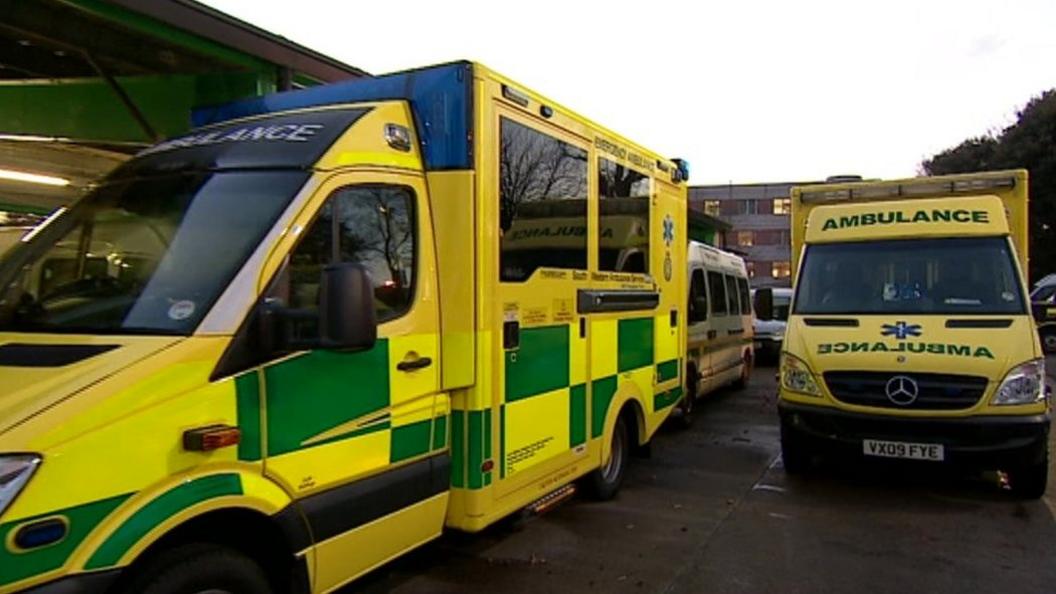South Western Ambulance assessment pilot 'successful'
- Published

Call handlers have three minutes to assess the exact nature of the emergency call
About 70,000 unnecessary ambulance call-outs have been avoided in a pilot project that gives call handlers more time to assess 999 calls.
The South Western Ambulance Service pilot began in February.
It gives staff three minutes, rather than the current government target of one minute, to assess calls that are not immediately life threatening.
The trial was launched in response to the "unprecedented increase in demand for ambulance services".
It was announced by Health Secretary Jeremy Hunt in January and covers Cornwall, Isles of Scilly, Devon, Dorset, Wiltshire, Gloucestershire, Bristol, Somerset and South Gloucestershire.
He said the aim was to establish if allowing a longer assessment could help ambulance services maintain or even improve the clinical outcomes for patients.
'Appropriate response'
In situations where a patient is not breathing or unconscious, an ambulance is still dispatched within the 60 seconds.
Neil Le Chevalier, South Western Ambulance Service NHS Foundation Trust's director of operations, said since the pilot began it had doubled its "hear and treat" rate because it had the time to assess and advise over the phone.
"It's been very successful and there have been no safety issues," he told BBC News.
He said the main benefit was being able to determine the most appropriate response.

Director of Operations Neil Le Chevalier said call handlers now have more time to establish what is wrong
"When somebody dials 999, they're in a panic, so it can take up to 45 seconds just trying to find out where the patient is and we're frequently sending an ambulance out under blue lights on an address incident only, not knowing what we're dealing with," he said.
"This new pilot gives us two extra minutes to ascertain exactly what's wrong."
In the first 26 weeks, he said more than 400,000 emergency calls had gone through the system with "70,000 ambulances not dispatched".
Mr Le Chevalier said call handlers ask a series of questions using a triage system of assessment approved by the Royal College of Surgeons and they also have a directory of services available to them.
"Instead of dispatching an ambulance, we can send a mental health team, a falls team or indeed refer to a GP if that's more appropriate," he added.
- Published28 August 2015

- Published1 January 2014

- Published1 February 2013

- Published1 March 2011